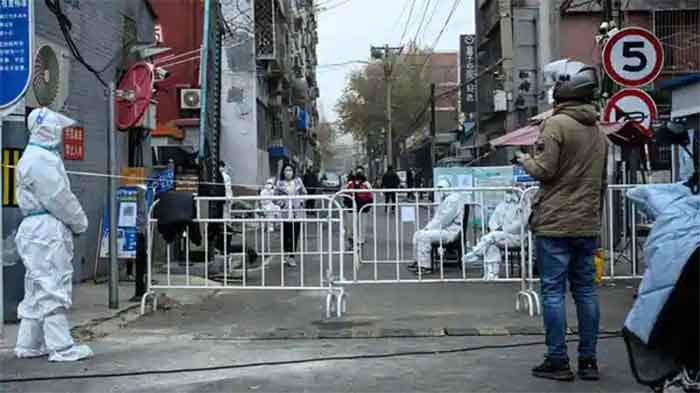
Corona pandemic is spreading and intensifying in India, in this year. Last year, despite fears, people did not feel the problem as much as now. In March, 2020, lockdown was justified citing the dismal health infrastructure in India. With images of individuals falling in the streets of China, Spain and Italy haunting, there was an expectation that situation in India would be much worse, because of population, poverty, poor infrastructure and a host of reasons. There were opinion pieces in media on the inadequacy of number of beds, hospitals, Doctors, nurses, etc. This did not happen then, in 2020. By December, 2020, opinions started emerging that India has won the war against covid2019. But the real pathetic situation has set in the last two months, from March, 2021.
Unlike other disasters, characteristics of corona pandemic are completely different, necessitating the involvement of a flexible, effective mechanism of relief. With corona pandemic being uncertain and abstract, in comparison with other epidemics and disasters, manoeuvrability is essential as also the ability to respond fast. During first 3 phases of lockdown in 2020, civil society has responded to the humanitarian crisis that ensued as score of poor labour families started walking to their native places, with children and materials in tow. Food and transport services became essential, as also shelter. Communication also became a necessity as relatives were worried about the conditions of their walking brethren.
Government machinery has its inherent rigidity, slowed by bureaucracy, accountability and procedural steps. But, with policies, finances and manpower, government had a role to play in supporting the civil society initiatives. But this is the story of every disaster. Between a society, civil society and a government, need for a society has never been felt more acute with corona pandemic. Corona pandemic is no longer a mere infectious disease. It has become a psychological terror for individual souls. Familial relations, community bonding and other social relationships did play a balming role in calming down depression-prone individuals. Wherever, these were absent, depression related fatal incidents were reported.
There is no doubt corona virus has exposed the chinks in administration and governance in India, much starker than before. Not just SARS-COV-2, but every unfortunate episode of disaster in India, has exposed such inadequacies in responses and relief. More so, when the victims required medical attention. Seasonal epidemics have been reminding us of the need to increase public investment in health infrastructure.
But, then there is another set of lacunae that have been largely ignored. Civil society in India has always been a robust participant in disaster relief and rehabilitation. Civil society, especially development organisations, were at the forefront of mobilising cash and other kind of support for the victims of floods, cyclones, epidemics and fire accidents. With Indian rich and elite, being stingy or spiritual, in sharing their wealth for such efforts of civil society, significant support was mobilising by the civil society from foreign countries. This was in addition to what government could do. Moreover, everyone felt volunteers were more honest and innovative, thus using the mobilised resources much more efficiently. Reaching out to the most vulnerable, without chains of bureaucracy, was possible only for civil society volunteers.
However, in the last 2 decades, national governments and various State governments have systematically undermined and destroyed Indian civil society that was led by developmental, advocacy and social change organisations[1]. Intensity of hassle from governing structures increased, with a change in the party in power, leading to gradual wilting of volunteerism and fossilisation of civil society structure. Citing on paper, letterhead organisations floated by corrupt politicians, contractors and officials, the same clique of corrupt elite destroyed the edifice of civil society, chip-by-chip and brick-by-brick. Compromised media and other Constitutional pillars did not heed the necessity of a civil society, in tandem with government. Private sector, led by multinational corporations and profit-mongering companies added their might to these efforts. On the other hand, Corporate Social Responsibility (CSR) did not fill the void that was being created by the decimation of civil society. Academics, intellects and other social institutions failed to notice the absence of civil society and its impact on Indian democracy, development and justice.
Challenges faced by civil society in India
In the past disasters, related to tsunami, storms, floods and fire, CSOs in India played visible and effective role. Their interventions in development, social justice and advocacy have been laudable and supportive. In disaster response, despite the experience, strength and huge potential CSOs have in disaster response, they are facing challenges in the course of doing their work.
The main challenges include:
- Size and scale: This is both a strength and challenge for small CSOs. With nation-wide pandemic, the more the number of CSOs the better it would be for relief. There were always derisive comments about the number of CSOs in India. Given the spread of corona pandemic, even into the remote, jungle areas of Chattisgarh and rural India, need for more CSOs has never been felt as much as now. But with modern communication systems and social media, CSOs have overcome this barrier by coordinating their actions.
- Big picture: Usually, the big picture of disaster such a flood relief or earh quake is not available for CSOs. But with corona pandemic and the daily updates by the Health departments and national media, big picture is apparent. However, the main challenge is to reach individuals and families whose abilities have been struck. With parents in hospitals, isolated among themselves and from the children, guardianship of the young has become a problem in itself. Only CSOs with grassroot connections can reach them quickly with the support of government.
- Poor coordination: In a complex emergency such as corona pandemic, where there is no coordination, CSOs may end up having duplicate initiatives in the same area, or may all be working in one location and totally undeserving other affected populations. In many instances when the work of CSOs looks haphazard, it is usually due to lack of strong central coordinating mechanism.
- Being ignored: State and central governments have ignored or ignoring CSOs especially in decision making. Yet because of their presence and interaction with affected populations, CSOs especially local ones were able to correctly identify the needs of the affected population.
- Funds: CSOs in India were able to procure financial support from global philanthropic institutions successfully in the past and in channelizing relief to victims of disasters in the past. However, with globalisation, governments in India, over the past 20 years, resorted to curtailing these funding sources through restrictions and amendments to regulatory laws. The alternative of Corporate Social Responsibility (CSR) channel of finances was always stunted in objectives, reach and ease of access.
Today, with heart-rending tales of profit-making, black marketing, corruption impinging on assistance to victims of corona pandemic, presence of civil society has never been felt more than now. With institutional debacle, individuals have been trying to coordinate relief and materials to covid victims. Yet, the institutional space provided by civil society is lacking. Many families, whose voice cannot and will not reach social media, are being failed by the health care system and governance mechanisms. Poor, downtrodden and destitute people would have benefitted from the presence of an active, dynamic, autonomous and independent civil society. A democratic society such as India, where every sinew of problem is interlinked with a variety of other challenges, requires civil society.
Its need would have been there even if the health care system has enough beds, trained human resources and materials, simply because the corona pandemic necessitates support and relief to people, much more beyond the treatment. In fact, when the treatment itself is abstract with no antidote to the virus infection, when precautions become important while treatment is only symptomatic, an intensive role for civil society in education, motivation and care is critical. In developed countries, including US, along the spectrum of support and relief, in terms of knowledge, information, food, treatment and post-covid relief, civil society participation was able to take the burden off the governments. In India, where corruption has become a norm, than an exception, in governance and administration, where corrupt officials have become so habituated to making money out of misery and licensing that they lost any sense of propriety and humanism, expecting the government to efficiently manage corona fight on behalf of the population would be churlish. It is the civil society, with its characteristic efficiency in terms of youthfulness, efficiency and philanthropy, which can deliver. In fact, across the country, we can see so many such efforts. However, we need a multitude of civil society organisations. And, that requires the government to take several steps back and bring in an encouraging atmosphere through policies and resources.
Unfortunately, even now, governments do not seem to understand the larger role of the civil society. A recent call by a NITI Aayog Member appears more as a sop, than a real intent to involve civil society in facilitating adherence of the vast Indian population to precautions. Government of India has to retract FCRA amendments, which create barriers and also are hassle for both funding organisations and recipient organisations. Just like media, government should allow more space for CSOs to operate and flourish, even while monitoring and implementing laws of the land. With corona pandemic predicted to take us on a long haul, and with more such pandemics being warned about, government has to encourage the growth of civil society that can supplement its efforts in education, awareness, capacity building and humanitarian responses. For profit organisations do not have the inclination or band-width to fill this void that has developed in more than two decades.
[1] https://www.scribd.com/document/100132490/Article-on-NGOs
Dr Narasimha Reddy Donthi has been a passionate campaigner on environmental and development issues. He has contributed to public discourse and policy changes in electricity, seed, rice, cotton, sugarcane, sericulture, handloom and textiles, land, water and other related areas. He built campaigns, advocacy programmes and policy change projects. He is an author, writing on different subjects in regional, national and international publications. He also guides students on their Ph.D and other research activities.
GET COUNTERCURRENTS DAILY NEWSLETTER STRAIGHT TO YOUR INBOX















































